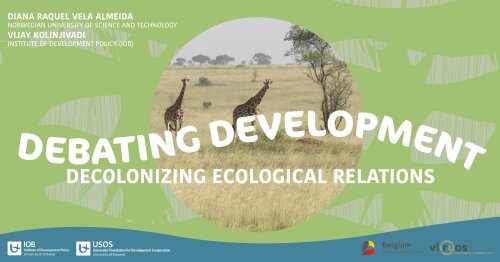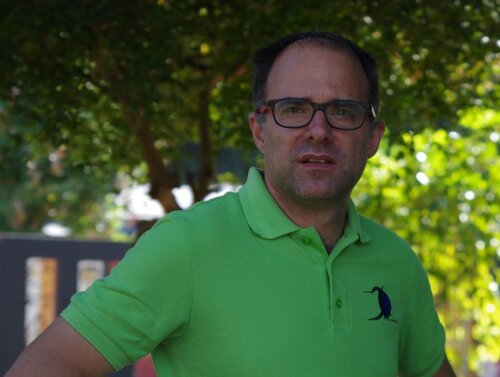Teaser video

Watch the recording of the webinar

Decolonizing ecological relations

Decolonizing ecological relations just like decolonization in general is such as a complex and politically charged issue that should involve people affected the most by colonialism. As such there is no single solution and a blueprint to decolonizing ecological relations.
In talking about colonialism and ecological relations, it’s important to note that any economic and political discussion has an ecological reference to it. The global societal relations we create are in fact ecological relations as well. Current colonial and capitalist modes of production and consumption are not separate entities but rather intricate processes that transform nature. The relationship with nature has resulted in historical processes that are today mostly vivid through the global environmental crisis that affects mainly poor and racialized communities in the world.
Decolonization is tied to the histories of domination and exploitation funded upon a vivid struggle between colonizers and colonized. Because it is about looking at historical and geopolitical multi-scalar relations that continue to exist, it has always to be contextualized to a specific geography and history of violence and dispossession. As such, it is about tackling the process of dispossession, violence and death that happened and continues to happen to racialized groups. These actions need to engage with structural injustices and judicial reform that go beyond economic pay-outs.
Decolonization is assuming social and ecological relations not as natural facts but as other forms of economic production and reproduction that are the result of the collective memory of societies. Rather than unlearning and deconstructing western knowledge or critiquing modernity, it is more about a serious discussion on how to symbolically and materially dismantle colonial, racial, gender and class oppression historically imposed and permanently reinforced upon people through social institutions. This dismantling starts in daily practices and extends to multiple scales of action and movement.
In sum, decolonization is subject to contradictions. It is a struggle, it is in dispute and it is unfinished.

Dr. Diana Vela Almeida is a post-doctoral researcher in the Geography Department at the Norwegian University of Science and Technology. She obtained a bachelor’s degree in Biology and Applied Ecology from Universidad San Francisco de Quito in 2008, a masters in Forest and Nature Conservation Policy from Wageningen University in 2011 and a doctorate from McGill University in 2016. She is also a member of the Collective of Critical Geography and the Popular Ecologist Movement, both in Ecuador.
Diana combines political ecology, ecological economics and critical geography to study extractivism, neoliberal environmentalism and economic transitions, socio-environmental resistance and social transformation. She has published widely in top ranked journals like World Development, Ecological Economics, Political Geography, Progress in Human Geography, Journal of Latin American Geography, Political Ecology, among others, and is also a contributing editor for Uneven Earth.

The discussant is Daniel Ribeiro (Justica Ambiental/Friends of the Earth Mozambique). Justica Ambiental, meaning environmental justice in Portuguese, is one of the leading civil society non-progit organisations in Mozambique. Daniel has been an activist for over 22 years. Together with other citizens of the grassroots movement, he has opposed and successfully ended a Danish funded toxic waste incinerator project in Mozambique.

Vijay Kolinjivadi is the moderator. He is postdoctoral fellow, at the Institute of Development Policy (IOB). He has spent over a decade exploring the social, cultural, and political implications of 'ecosystem service' policies on impacted communities in Central and South Asia and also in Canada. In particular, he focuses on the social and environmental justice aspects of such policies with respect to complex socio-ecological decision-making and in the spirit of degrowth and decolonial development futures.